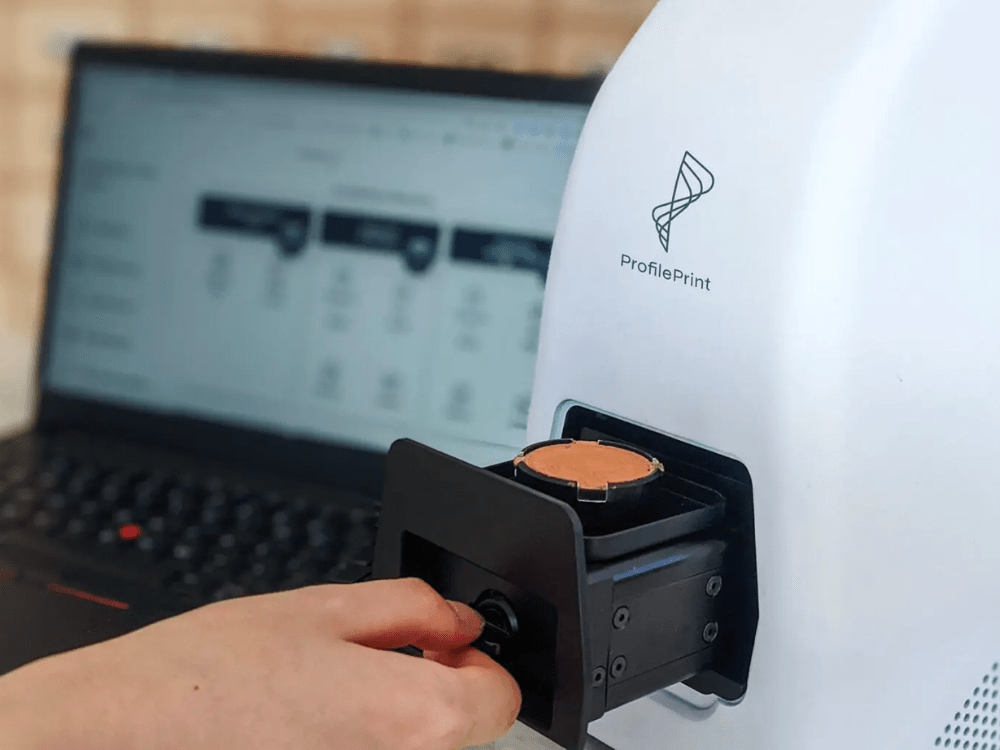Agribusiness giant Cargill recently joined a list of high-profile corporate investors in Singapore food grading startup ProfilePrint, contributing an undisclosed sum to the latter’s recent Series A1 round.
ProfilePrint’s patented AI-based platform can digitally grade food ingredients, greatly speeding up the quality assurance process for food manufacturers and retailers up and down the supply chain.
Netherlands-based Louis Dreyfus Company (LDC), Singapore agribusiness corporate Olam Group, international coffee merchant Sucafina and Indonesia’s Sinar Mas contributed to ProfilePrint’s Series A round that closed earlier this year.
“They were all clients to begin with,” ProfilePrint founder and CEO Alan Lai says of the company’s corporate investors. Eventually, those companies decided to “invest collectively” in what became the Series A round.
How it works:
ProfilePrint’s “digital fingerprint” technology can make on-the-spot assessments of different food ingredients — coffee, cocoa or rice, for example — and grade them for quality far faster than traditional methods.
- The company’s portable scanner lets those in the supply chain, like manufacturers and retailers, digitally assess the quality and authenticity of ingredients via a small sample inserted into the scanner.
- The process, which only takes a few seconds, involves electromagnetic scanning of the ingredients, which are then scored for quality; the results are posted online where buyers and sellers can access them remotely.
- Testing samples via ProfilePrint’s device can save food companies weeks, since no sample has to be sent to a lab for inspection.
- ProfilePrint is currently in 26 cities of the world that includes all five continents from Africa to America, China, Southeast Asia.
- ProfilePrint’s system currently works for tea, coffee, grains and oilseeds, cocoa, herbs and spices, liquids, food additives and dairy products.
- Cargill has completed pilots with ProfilePrint and says it has validated the application of the latter’s technology across its ingredients portfolio.
Why it matters:
ProfilePrint’s portable scanner can alleviate the enormous amount of effort required currently to grade food samples as they travel across the supply chain.
Lai explains that normally samples have to be sent to a lab for testing to detect adulterations and poor or inconsistent quality across a product. The process of sending and testing the product, then receiving the results can take weeks, slowing down food companies’ ability to meet internal requirements, in addition to getting products to retailers and consumers.
“Our clients like LDC or Sucafina who are big in the supply chain, they effectively saw the value of digitalizing the supply chain from the source, where the farmers actually grow the products to know exactly the quality [of a product] even before deciding to buy it and at what price,” says Lai.
“ProfilePrint’s digital food fingerprinting technology holds the potential to transform the global food-ingredient supply chain, strengthening the sensory innovation capabilities of our ingredient portfolio without compromising on taste and quality. This can help Cargill deliver against our high standards for food quality and enable faster and more precise product development for our customers,” said Francesca Kleemans, managing director for Cargill’s Cocoa and Chocolate business in Asia Pacific in a statement.
The process also cuts down on food waste, since physical samples aren’t constantly being sent to the lab for testing.
Another major benefit of ProfilePrint’s technology is that it can highlight sellers in markets not historically known for exporting a particular ingredient.
For example, a coffee grown in Laos scored exceptionally high at a ProfilePrint demonstration, despite Laos not being a go-to place for coffee sourcing, says Lai.
“A big company that produces chocolate or confectionery would [not] want to take the risk of trying out Indonesia or Philippines instead of well-known places like Ghana,” La adds. “But the truth is that many farmers can match the quality. We believe that by implementing digital grading we help uncover some of these undervalued products that may be of equal quality. That is important for resilience and how adaptive the supply chain can be.”





